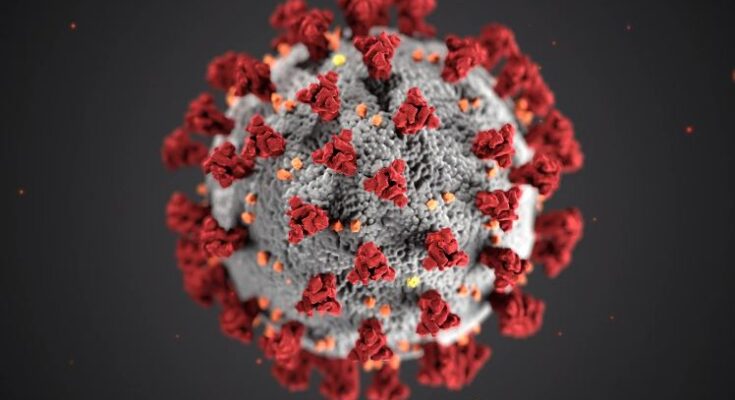Is the world’s second most populous country prepared for an outbreak of coronavirus?
Although coronavirus is yet to acquire the pandemic status in India, its ripple effects are clearly visible in the form of stock market volatility, grounding of travel plans, companies scrambling to protect their employees by extending them the leverage to work from home, and events such as conferences being called off on a daily basis.
COVID-19 or coronavirus outbreak is knocking on India’s door with 43 confirmed cases so far. The latest case is from Kerala, of a 3-year-old child, who has tested positive for coronavirus. The child accompanied by his parents had landed at the Cochin International Airport via flight from Italy on Saturday, March 7.
On being detected with symptoms of coronavirus, the child was immediately referred to the isolation ward of the Kalamassery Medical College Hospital. The officials later confirmed that the samples of the child sent for examination to the NiV lab in Alappuzha had tested positive for coronavirus.
In the meanwhile, Qatar has barred travelers from 14 countries including India from entering the country as a precautionary measure against coronavirus.
The Covid-19 epidemic has already killed over 3,000 people across more than 60 countries, with tens of thousands of people being infected. According to news agency Reuters, most cases including 2,943 deaths have been reported from mainland China.
After originating from the Chinese city of Wuhan, coronavirus has spread rapidly across the globe. Two confirmed deaths have also been reported in the United States amid an uptick in cases.
Initially called novel coronavirus 2019 (nCov-19), the pandemic infection was formally labelled as Coronavirus Disease 2019 (Covid-19), since it is caused by a coronavirus never seen before. The symptoms of the coronavirus include shortness of breath, common cold, fever, pneumonia, kidney failure, and even death.
The focus is now on India, the second most populous country in the world, which claims to be among the first few nations to have prepared for the coronavirus outbreak. According to Health Minister Harsh Vardhan, India began screening people at its airports from January 17, a good two weeks before the World Health Organization (WHO) declared the outbreak of coronavirus as a global emergency.
According to Vardhan, by last Tuesday, 600,000 people had been screened at India’s 21 airports and 77 seaports. He further said that over 27,000 people residing in five states bordering with Nepal have been put under surveillance and a million of them tested for the virus. India is also setting up a screening lab in Iran to test the returnees, informed the Health Minister.
As per the minister’s claims, health workers are being trained for any potential outbreak along with setting up isolation wards in state-run hospitals. Also, 34 labs across the country are testing for the virus, up from the earlier 15. India has also stopped exporting N95 masks to ensure there is enough supply at home.
Health Minister Harsh Vardhan said, “India is thoroughly prepared to handle any situation that could emerge. We are alert, meticulous and conscious.”
Although all this might sound reassuring, these measures may not be enough to prevent an outbreak. A major problem according to experts is that the incubation period – the time duration between getting infected and showing symptoms – could last up to at least 14 days. Some experts believe that the incubation period might even extend to 24 days.
This translates into the fact that someone who tested negative at an Indian airport might be carrying the infection, and would eventually infect others. Chief scientist at the WHO, Soumya Swaminathan, says, “Airport entry screening is good and should be continued, but that’s not going to be sufficient now. We have to put in place other surveillance mechanisms through systems India already has.”
Despite a non-aligned and distorted public healthcare system, India has an impeccable record of eradicating polio and facing the swine flu pandemic in 2009, apart from the more recent and deadly Nipah virus outbreak.
However, in the event of a major outbreak, India is expected to face a number of challenges since the quality of the country’s healthcare system is vastly uneven. A sudden spike in admissions could overwhelm existing hospital infrastructure. It is also unclear whether the hospitals in India have sufficient supplies of masks, gloves, drugs, and ventilators.
According to virologist Jacob John, India will struggle to handle a coronavirus outbreak. Speaking with Scroll.in, he said, “We have not yet established a 21st century health management system in the country, so we have to face the consequences of that gap.”
The need of the hour is for India to strategize and communicate openly by setting up 24-hour helplines, for example, so that the people can be kept well informed, and the rumors about the disease spreading like wildfire on social media platforms like WhatsApp, be nipped in the bud. As per the country’s health minister there is no reason to panic yet, but the country needs to remain vigilant and prepared for any impending outbreak of the coronavirus.




